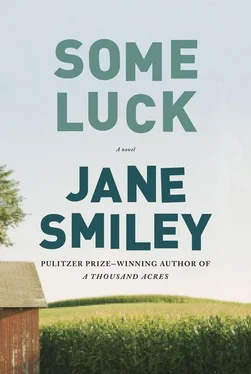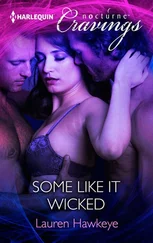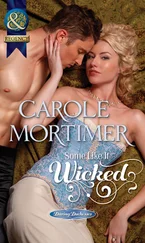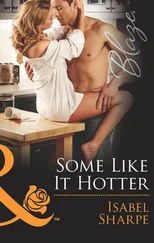Lillian said, “His eyes are open.”
Mama laughed. “Well, it’s not exactly like kittens, sweetheart.”
Lillian gazed at Henry’s face, and he seemed, she was sure, to return her gaze. She lifted her hand and moved it toward the baby — Henry. Granny Mary said, “Are your hands—”
But Mama said, “It’s fine.” And Lillian put her hand on Henry’s forehead, which was as soft and warm as anything she had ever touched. She said, “I love you, Henry.” And she did.

IF YOU HAD TOLD Rosanna that having Henry the way she did would have tossed her down such a deep dark tunnel as it seemed to have when she looked back on it from, say, mid-January, she would not have believed you. Faultless baby, but a despair no amount of prayers could relieve, even a visit by her pastor, all the way from Usherton. Nothing Granny Mary could concoct by way of teas or tonics or even cookies or cakes could lift her spirits. She looked out the window (Oh, the wind had poured in the windows, so cold and shrill. No one could hear her, it was terrifying), she looked down at her own feet (Her own belly looked like a rock, as hard as that, pressing that poor baby out, no matter what she wanted or thought best), she looked at the walls (The walls had shivered and waved as if they might collapse on her), she looked at Henry, and every adorable curl of his hair, every delightful smile, every clenching of his little fist or kicking of his legs, was something that might not have happened if events had gone another way. The sun went down, and she turned on one of the new electric lights; somehow their stark yellowness and the odd shadows seemed ominous. She wept.
Without knowing it, she had been perched on the point of a pin, balanced there between life and death, between what happened to Mary Elizabeth and what happened to Lillian, and she had blindly stumbled forward, and, yes, everything had turned out well — better than well — another beautiful, happy child — but she had been on the head of that pin before and had fallen into the abyss, and then the six years after Lillian’s birth had simply been a cloud of ignorance. She had thought such a thing could never happen again, but it happened all the time! Hadn’t Walter’s brother Lester, whom he had never known, died of measles when he was two? Yes, said Granny Elizabeth, but — Rosanna didn’t listen to the “but.” Hadn’t Oma’s sister back in Ohio fallen down the cellar stairs? Granny Mary had never heard that, but Rosanna was sure it was true. Grandpa Wilmer had gotten scarlet fever as a boy and almost died, and Granny Mary herself had gotten lost among the cows when she was three and they hadn’t found her for almost a day. Only an hour, and how did Rosanna remember all of these things, said Granny Mary — they were best forgotten, or you couldn’t go on, especially as a farmer. Granny Mary didn’t even read obituaries anymore. She thought Rosanna should make herself think good thoughts, but good thoughts were the worst, because all around the good thoughts, bad ones clamored for her attention, and the better the thoughts (how darling Henry was, and how helpful Lillian was — not jealous at all), the louder the clamor of the bad thoughts.
Even after she was up and around, and all the bedclothes and towels were laundered, and she was engaged in the routine that she knew so well — cooking, cleaning, nursing, napping, changing — the very corners of the house itself, the walls and the doors, were stamped with the feelings and sights and sounds of that day — she could be stirring oatmeal at the stove and thinking nothing, and the sound of the wind rising around the corner of the house made her heart flutter and her spirits sink — why was that? Oh, the next picture that came into her mind was the boys’ windows from the bed, open to the October breeze.
Praying, she came to feel privately, was worse than useless, because every time she articulated that thing that she wanted relief from, it flooded her; the very word “Jesus” began to make her nervous. Then she tried reading the Bible, but there were lots of terrifying things in the Bible — episodes she had read through blindly before, and not just the Slaughter of the Innocents — that she now saw much more vividly in her mind. You could cry over Noah’s Ark if you were in the mood. It was not helpful for her mother, or Walter’s mother, to say they’d known new mothers who had just the same thing happen to them, though neither of them, thank goodness …
Now I know, Rosanna thought. I’m almost thirty-three. I really know what it means to be alive. And she wept again.
LILLIAN COULD REMEMBER one time, it was before she went to school, maybe she was four or three. Anyway, she was sitting talking to Lizzie about being a grown-up, and Frankie came onto the porch with his shotgun in one hand and a dead rabbit in the other — Lillian remembered that, because she didn’t like guns, so she had turned Lizzie over to hide her eyes — and Lillian had looked up from her doll bed and said, “When I grow up, I’m going to marry Mama.”
Frankie stared at her, which was the first thing that told her she had made a mistake, and then said, “You can’t marry Mama. You have to marry a boy, and somebody you don’t know.”
Lillian had felt genuinely surprised by this new rule, but of course, if it was a rule, then Lillian would certainly follow it. With greater age and sophistication, she had come to understand that what she’d been saying to Frankie was that she loved Mama completely, better than anyone in the world. However, now there was Henry.
The only other baby Lillian knew at all well was Lois, Minnie’s sister, who would soon be three. Lois was much more interesting to Lillian than she was to Minnie, or, apparently, to Mrs. Frederick, who didn’t like her to get underfoot and when she set her food in front of her said, “Eat it or starve, my girl. It’s your choice.” It was true that Lois usually ate her food, but Lillian was sometimes afraid that she wouldn’t. Occasionally, Lillian had been at the Fredericks’ when Mrs. Frederick was doing something and looked up and said, “Goodness, where’s the baby gotten to now?” One time, they looked all over for her and found her in a closet. From all of this, Lillian gathered that Lois was not an especially valuable child, though to all appearances she was perfectly adequate — she walked and talked and didn’t cry all that much, and she never had a tantrum that Lillian had seen, though Minnie said there were some. Perhaps that was the key — tantrums? Lillian herself had never had a tantrum, and they were obviously indulgences to be avoided.
Lois was a puzzle that was to some extent solved by Henry, because Henry was so wonderful and delightful a child that clearly it was the case that some were better than others, and you were fortunate to get a good one. Even though Mama was sad a lot of the time now, which seemed to be the way you got once you’d had a baby, she never looked at Henry without a smile, and she picked him up and took him in her arms as if she could not help herself. Lillian felt the subtraction of attention from herself not as a loss, but as a bit of newfound freedom and as a recognition that nothing was more valuable than a baby, if it was a very good baby.
She stroked his head, and she encouraged him to hook his fingers over her finger, and she drew pictures of him at school, and she sat next to his cradle and talked to him. She sat quietly on the sofa, against the back so that her lap was as big as it could be, and Mama put him in her arms. She practiced holding him and jiggling him the way Mama did, and her reward was that sometimes, when Mama was busy, she got Henry in her arms if he was fussy, and she would jiggle him and he would stop crying. As he got older, she made faces at him that got him to laugh, and once he was sitting up, she showed him how to clap hands and to look up and down and from side to side. Really, there was no one more fun to play with than Henry. By contrast, Papa, Frankie, and Joey were intensely dull, because they talked all the time about what they were doing and what they wanted and what they thought, topics that Lillian could not care less about. With Henry, you had to watch carefully, and guess what he was thinking, and then do something that showed whether you were right or wrong. Mama said he could only be thinking about whether he was hungry or tired or wet, but Lillian did not agree. She thought he was thinking about a lot of things, like the shadows on the floor and the raindrops hitting the windows, and Mama, of course, and Lizzie and Lolly and the hand-me-down rocking horse some Vogel cousins had brought when they came at Christmas to see the baby. Possibly about Little Red Riding Hood and the Big Bad Wolf — Lillian had told him, not the version that Mama told her, where the Wolf ate Little Red Riding Hood, but the version Granny Mary told her, where the Wolf was going to eat her but since he had eaten the Grandma he wasn’t very hungry, so he tied a string to her wrist and fell asleep; once he was asleep, Little Red Riding Hood tied him to the bedpost and ran and got the Woodsman, who came in with his ax and slit the wolf from his throat to his belly button and let the Grandma out. She also sang songs to him — there were plenty of those, and Lillian had a good memory for them. At school, she learned “America the Beautiful,” at church she learned “I’ll Fly Away,” from Frankie she learned her favorite, “Hard Times Come Again No More,” and from Granny Mary she learned a song about a girl named Laurie who sat on a hill, “Her golden jewelry sparkles as she combs her golden hair.” From Granny Elizabeth, she learned a song about a silkie, which seemed to be a monster, that she didn’t understand, but sang to Henry anyway, and from Mama she had learned the saddest song of all, which was “Banks of the Ohio,” but she didn’t sing that one for Henry, she only hummed it from time to time.
Читать дальше













